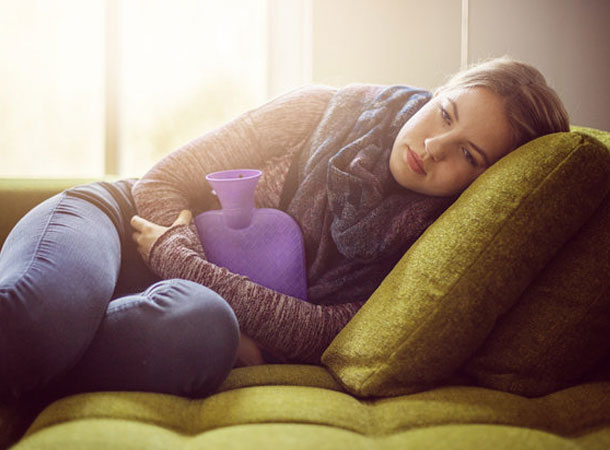Who wants to exercise when it’s cold and dark outside? But even in winter getting outdoors can put you in a better mood. It may even improve your concentration.
So bundle yourself and your kids up in layers. Be sure everyone’s heads and hands are covered. And, take some extra time warming up before you exercise in the cold. Then, try these fun activities to keep you and your family in motion through the winter months.
1. Avoid the Handshake
It’s becoming more common—and less socially awkward—to skip hand-to-hand contact (and the subsequent germ exchange) during cold and flu season. “Fist bumps and elbow bumps are replacing the handshake in many settings,” says William Schaffner, M.D., professor of preventive medicine and infectious disease at Vanderbilt University Medical Center in Nashville, Tenn. “Among my infectious disease colleagues I see a version of the South Asian ‘Namaste,’ where we put our hands together at our chests, make eye contact and give a little bow.”
2. Cover Your Coughs and Sneezes Properly
If you’re the one who’s spewing germs, one way to keep them to yourself is to sneeze or cough into the crook of your elbow. “When you cough or sneeze, that air comes out with a good degree of force, spreading virus particles to anyone within a 3- to 6-foot range,” says Lisa Grohskopf, M.D., a medical officer in the Influenza Division at the CDC. Sneezing or coughing into your hand will help keep the germs from going airborne, but if you don’t wash your hands immediately, you’ll spread the germs the minute you touch anything or anyone.
3. Be proactive about preventing ear infections
Warm up garlic oil (sold in natural health food stores) to body temperature and put a dropper full into each ear canal.
4. Keep Your Distance
Respiratory viruses, like colds and flu, can spread easily through the air. “When someone who’s sick exhales, they breathe out microscopic droplets of fluid containing the virus,” Schaffner says. “And anyone else within their ‘breathing zone’ can then breathe in that infected air.” To stay safely out of reach, keep about 6 feet between you and any sick person who is likely to breathe, cough, or sneeze in your direction.
5. Clean Often-Touched Surfaces
Because those nasty bacteria and viruses stick around on surfaces for hours or even days, cleaning is key. “I recommend an approach called ‘targeted hygiene,’” says Elizabeth Scott, Ph.D., co-director of the Simmons Center for Hygiene and Health in Home and Community at Simmons College in Boston, and co-author of the 2012 study. “This means targeting cleaning and disinfection practices when and where there is a risk of infection transmission.” For example, if someone has a respiratory infection or gastrointestinal infection in a given setting, such as at home or the office, that would be the time to target those common touch surfaces or a regular, at least daily, basis. At the office, wipe down shared work spaces and equipment, such as copy machines that the whole office touches. At home, focus on the hard surfaces—like doorknobs, faucets, and TV remotes—on which bacteria live the longest. Just as with hand-washing, you can skip the anti-bacterial cleaning products. Experts say any household cleaner—or a diluted bleach solution—will do the trick.
6.Keep stress to a minimum
Studies have linked high stress levels to making a person more susceptible to catching colds and flu. Minimize your stress by working reasonable hours at your job. Aim for at least one night per week to spend with friends and family. If your stress is out of hand and you feel like you need some help, let me know. Frequently, I work with people who have stress or emotional challenges and utilize Bach Flower Remedies to bring their emotional health back into balance.
7.Eat a healthy diet
Maintaining a good healthy diet full of fresh fruits and vegetables and minimal amounts of organic meats is another way to keep your body clean and in good working order. Try eating an extra piece of fruit or veggie every day too!
8.Get the right amount of sleep every night
The average person needs 6-8 hours of sleep per night. If you’re not getting enough sleep, your body is extremely vulnerable to illness. Sleep is very much like fuel that recharges your batteries! You’ve got to do it to keep the machine running.
9.Wash your hands regularly
Keep the bacteria and viruses off your hands and out of your mouth and eyes. Keep a bottle of hand sanitizer close-by for those instances where you can’t get to soap and water.
10. Don’t smoke
Most of you already know this, but it bears repeating because smoking significantly weakens your immune system. If you want to quit and have tried everything else, let me know. I have some nutritional recommendations that can help you quit!
11. Protect your skin
Sunscreen is more important in the winter. There are two types of ultraviolet (UV) light from the sun that damage your skin: ultraviolet A (UVA) and ultraviolet B (UVB) light. UVB light penetrates the superficial layers of the skin and causes skin to redden; it’s responsible for sunburn and can also lead to skin cancer over time. But UVB rays are at least blocked by window glass from the house and car and are less intense in the winter months. UVA light, on the other hand, penetrates top and deeper layers of skin, causing cell damage that can lead to cancer. UVA light is tough to avoid because it passes through window glass and stays the same strength all year—so keep up your sunscreen routine.
12. Drink more milk
You are 80% more likely to get a cold in winter, so making sure your immune system is in tip-top condition is important. Milk and dairy products such as cheese, yoghurt and fromage frais are great sources of protein and vitamins A and B12.
13. Have a hearty breakfast
Winter is the perfect season for porridge. Eating a warm bowlful on a cold morning isn’t just a delicious way to start your day, it also helps boost your intake of starchy foods and fibre.
14. Keep moving
While it’s a little harder to find the motivation to exercise when it is cold outside, remember that keeping active during winter is essential to support our health and wellbeing. Moving your exercise indoors during winter will help to keep you warm as well as fit and healthy. Be sure to spend time warming up before you start your exercise as it can take a little longer for your joints to loosen up in the cold weather.
15.Circulation
During winter our hands and feet can often feel cold. Our hands and feet are at the extremities of our bodies which means they are the furthest from the heart which is pumping blood around our body to help keep us warm. Vitamin E and the herb Ginkgo help to support peripheral blood circulation, thereby alleviating cold hands and feet. Keep moving with gentle exercise to help improve circulation to the extremities of the body and don’t forget your socks and gloves! If you can’t seem to keep your hands warm (and it’s not bothering you excessively) take solace in the old saying “Cold hands, warm heart”
16. Hiking
Hiking affords many of the same benefits as walking, and gives you the chance to explore new vistas.
17. Running
Vigorous exercise like running slows the effects of aging and appears to help fend off disease and disability.
18. Yoga or Pilates
Yoga is a great way for adults and kids to keep muscles limber and take a stress break. Pilates builds strong core muscles and can improve posture. You can find yoga and Pilates classes at a gym, in a studio, or get a DVD you can follow at home.
19. Swimming
If you have access to an indoor pool, jump in for your mental and physical health. Not only is swimming the most popular athletic activity in the U.S., swimmers tend to live longer and have better moods than people who do not exercise.
Beside this:
Take These Steps for Your Home
Many people prefer to remain indoors in the winter, but staying inside is no guarantee of safety. Take these steps to keep your home safe and warm during the winter months.
-Winterize your home. ◦Install weather stripping, insulation, and storm windows.
-Insulate water lines that run along exterior walls.
-Clean out gutters and repair roof leaks.
Check your heating systems. ◦Have your heating system serviced professionally to make sure that it is clean, working properly, and ventilated to the outside.
-Inspect and clean fireplaces and chimneys.
-Install a smoke detector. Test batteries monthly and replace them twice a year.
-Have a safe alternate heating source and alternate fuels available.
-Prevent carbon monoxide (CO) emergencies. ◾Install a CO detector to alert you of the presence of the deadly, odorless, colorless gas. Check batteries when you change your clocks in the fall and spring.
-Learn symptoms of CO poisoning: headache, dizziness, weakness, upset stomach, vomiting, chest pain, and confusion.
Take These Precautions Outdoors
Many people spend time outdoors in the winter working, traveling, or enjoying winter sports. Outdoor activities can expose you to several safety hazards, but you can take these steps to prepare for them:
-Wear appropriate outdoor clothing: wear a tightly woven, preferably wind-resistant coat or jacket; inner layers of light, warm clothing; mittens; hats; scarves; and waterproof boots.
-Sprinkle cat litter or sand on icy patches.
-Learn safety precautions to follow when outdoors. ◦Work slowly when doing outside chores.
-Take a buddy and an emergency kit when you are participating in outdoor recreation.
-Carry a cell phone.
Sources:
http://www.cdc.gov/Features/WinterWeather/index.html
http://www.consumerreports.org/conditions-treatments/stay-healthy-this-winter/
http://stayhealthyandwell.com/10-tips-to-stay-healthy-during-the-winter-season/
http://www.prevention.com/health/healthy-living/5-natural-ways-stay-healthy-winter
http://www.nhs.uk/livewell/winterhealth/pages/healthywinter.aspx
https://cenovis.com.au/10-tips-for-staying-healthy-this-winter/
http://www.webmd.com/parenting/family-health-12/checklist-winter-fitness
http://theartofsimple.net/20-ways-to-stay-healthy-and-happy-this-winter-season/
http://www.huffingtonpost.com/entry/flu-risk-may-depend-on-birth-year_us_582aff9be4b02d21bbca7fee?utm_hp_ref=winter-health














